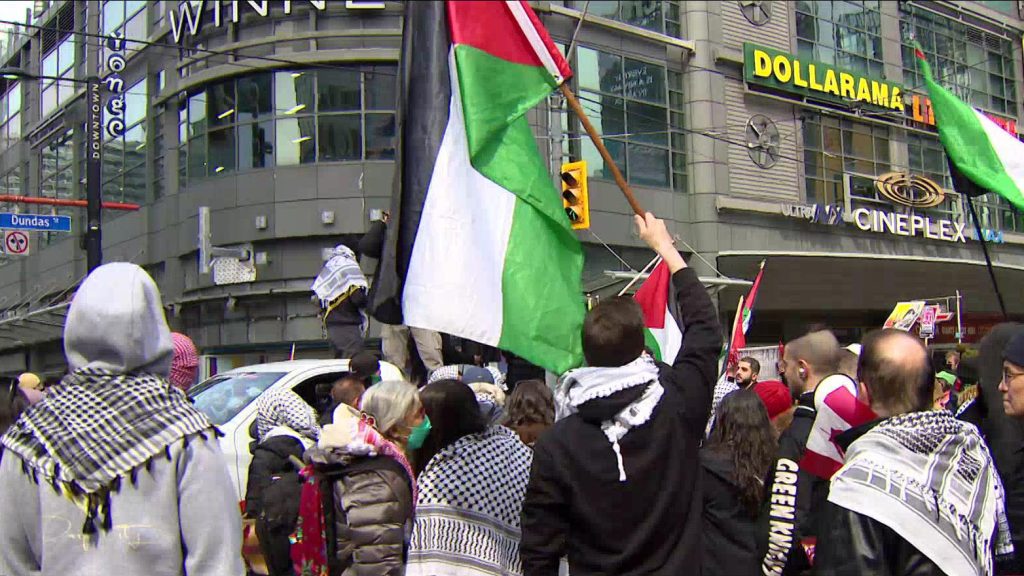Toronto FC GM sheds light on Urruti case
Posted September 30, 2013 1:19 pm.
This article is more than 5 years old.
When Toronto FC manager Ryan Nelsen referred to former forward Maximiliano Urruti as a “league designated player,” Major League Soccer was quick to deny such a designation existed.
But it appears the league did dip into a special fund to help Toronto FC sign the Argentine striker, who was subsequently traded to Portland.
Nelsen continues to use the term “league DP.” But Toronto’s new GM Tim Bezbatchenko, formerly senior director of player relations and competition at Major League Soccer, says there is no such animal.
Teams are allowed up to three marquee designated players with only a portion of their pay counting against the salary cap. For example, Toronto’s Dutch striker Danny Koevermans is making US$1.66 million this season but only $368,750 goes on the cap.
The MLS was formed in 1996 as a single-entity structure. Investor-operators had a share of the league and were given franchise(s) to run but most personnel decisions were made at head office.
Teams have far more say in their roster these days, but the league remains involved.
Asked about the Urutti case, Bezbatchenko said there were a variety of league initiatives and funds “that help teams with resources to acquire players, including DPs.”
“Now there’s no such thing as a league DP. What he (Nelsen) is referring to is that sort of subsidy. But that’s not unlike a lot of other players in the league.”
Bezbatchenko said former team president Kevin Payne, who was a fan of Argentine talent, and other team staff identified Urruti as a player to chase.
“There’s no such thing as the league going finding players and saying ‘Here, this is your guy, this is a league DP and you have to play them.’ That does not exist.
“Now what he’s referring to is just sort of the subsidy and then the involvement from the league office to acquire him and help acquire him was higher with these players.”
Essentially the fund helps select MLS clubs get their man, with the league throwing its weight behind the hunt.
While Bezbatchenko shot down league involvement in how much action such players would get, it would seem natural that the league might want to see its investment showcased.
Asked if the subsidy program was new, Bezbatchenko replied: “I would say it’s new in the sense that there’s more involvement to help the teams acquire the players.
“What we’ve seen is that our strike rate with DPs is not the best,” he added. “Whether or not it’s Toronto or anywhere else. Why not leverage the league’s resources to help — not scout — but help the teams find the players? And that’s what this is about.
“There’s been some of it in the past but we’re doing it more.”
This league help is “based on what the team needs and it’s based on how they performed in the years prior.”
Toronto had the worst record in the league last season. This year it’s D.C. United, with Bezbatchenko saying Ben Olsen’s team was probably next in line to get help from the fund — which has no name.
“It’s definitely not league DP,” he said.
Which might explain why Bezbatchenko made a bit of face during a Saturday Q-and-A with Toronto FC supporters when Nelsen again referred to Urutti as a league DP.
Maple Leaf Sports & Entertainment CEO Tim Leiweke encouraged Nelsen to address the Urutti trade when a fan asked about it at Saturday’s session.
“So Urutti was a league DP where a league fund kind of buys this player,” Nelsen said. “So then he’s brought in to us on a very high salary cap number at the age of 21.
“Now we’ve got a lot of 20-year-olds, a lot of 21-year-olds. We’ve got a lot of young players. When we look at next year and the two positions we’re going to fill is most likely the striking position— we’ need proven, experienced, hardened, goal-scoring strikers. We need them.
“There’s only so many players we can also develop to be a good player in two or three years. So it was a position, while it was a need, where probably he wouldn’t play for us. Because come January, come to the future when we’re sitting here again, you’ll see why he won’t play for us, he won’t start for us.
“So it’s a high number on your salary cap that’s going to be sitting on your bench, it’s a young player that we have to develop for two to three years and it’s also a league DP as well.”
In exchange for Urruti, Toronto got “significant” allocation money, a first-round draft pick and striker Bright Dike from the Timbers. The club also got to keep 20 per cent of Urutti’s rights, meaning it will profit when Portland sells him.
“It was a fantastic deal for us,” said Nelsen.
Nelsen said the physical Dike, when fully fit, will complement the DP strikers and be able to come on in the final 20 minutes of a match to “cause potentially carnage.”
Urruti’s salary cap hit is listed at $200,000, the exact number for a young designated player. Bezbatchenko said that was a coincidence
On other TFC matters, Leiweke said team officials are “very focused” on the English Premier League and Italy’s Serie A in the search for designated players.
Leiweke also said the reason Toronto did not sign designated players during the August transfer window was because the players in question weren’t right for the franchise.
Leiweke all but said that he fired Payne because he was leading the hunt for those players.
The MLSE boss also did not mince words on what TFC fans have gone through in the past.
“But what we’ve done to you and your passion and your abuse, they ought to write a book about it. Because it’s the most disrespect I’ve seen to a fanbase in a long time and we’re going to change that.”










